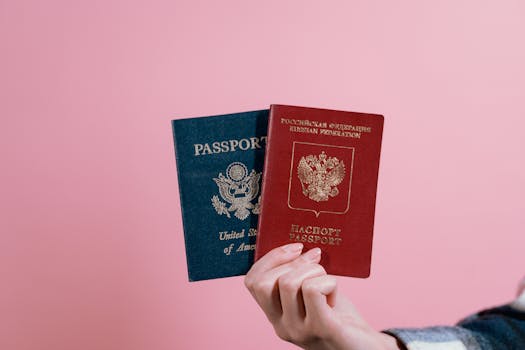Apps and Tech
Security in iMessage, WhatsApp, and RCS: privacy and backups
Discover the differences in privacy and backup features across iMessage, WhatsApp, and RCS. This guide offers step-by-step instructions to increase messaging security usa for all your conversations.
Advertisement
Locking down your private messages is a real concern—no one wants surprises from data leaks or snooping. Messaging security usa impacts everyone who relies on phones to chat, plan, and share moments.
Digital conversations can linger for years in apps like iMessage, WhatsApp, and RCS, making privacy settings and backup options vital. Users need clarity on how their information is stored and moved.
If you want practical ways to manage privacy, learn backup strategies, and compare messaging platforms, this guide offers hands-on tips. Explore how messaging security usa shapes every tap and send.
Choose the Right App by Comparing Their Privacy Features
This section arms you with details needed to decide which messaging platform aligns with your privacy goals and habits for messaging security usa.
Diving into what’s under the hood, you’ll notice each app—iMessage, WhatsApp, and RCS—handles encryption, cloud backups, and identity security very differently, directly affecting your experience.
Encryption’s Role in Everyday Messaging
Messaging security usa depends partly on end-to-end encryption. When a message is encrypted from sender to recipient, no one else can read it along the way.
WhatsApp uses this by default for all chats. iMessage does it, too, but only when both parties use Apple devices—switching to SMS drops the security level right away.
RCS, the modern upgrade to SMS, encrypts conversations only if both you and your recipient have compatible devices and apps. Otherwise, fallback to basic SMS means less safety.
User Identity Protection and Verification
To bolster messaging security usa, consider how apps verify identities. WhatsApp links every account to a phone number and prompts for verification codes during set-up and restoration.
iMessage ties messages to Apple IDs, offering multi-factor authentication to limit unauthorized access. For RCS, identity relies mainly on your phone number and carrier authentication.
On all platforms, two-step verification adds another safety net, stopping many simple intrusions. For better protection, enable this feature in your messaging app’s settings menu.
| App | Encryption Type | Backup Option | Takeaway |
|---|---|---|---|
| iMessage | End-to-end (Apple only) | iCloud backup (optionally encrypted) | Double-check backup encryption in iCloud settings |
| Always end-to-end | Google Drive or iCloud | Set up password-protected backups | |
| RCS | Conditional end-to-end | Google One backup | Use RCS in Google Messages for best results |
| SMS/MMS | None | Device-only, not encrypted | Avoid for sensitive info |
| Telegram | Server-side (not always end-to-end) | Cloud (company-managed) | Use Secret Chats for best privacy |
Secure Your Chats with Strong Backup and Restore Habits
Setting up robust backups is action you can take today for messaging security usa. Backing up means having a safety net, but also creates potential risks if not handled with care.
Good habits—like choosing encrypted cloud storage and updating passwords—help ensure private messages stay safe, even if your phone is lost or stolen.
Turn On App-Based Backup Encryption
In WhatsApp, head to Settings > Chats > Chat Backup and pick ‘Encrypt Backups.’ Create a strong password—don’t reuse a password from other apps or accounts for messaging security usa.
For iMessage, check that iCloud Backup is enabled under Settings. Toggle on ‘Messages’ in the iCloud menu. Set up an iCloud account with two-factor authentication for added security.
- Create a unique backup password for each messaging app; this reduces risks if one service gets breached.
- Schedule regular backup intervals, such as weekly automatic cloud saves, so you never lose sensitive chats.
- Double-check your cloud provider’s privacy settings to ensure backups are encrypted at rest whenever possible.
- Don’t keep old phones or tablets logged into messaging accounts, as these devices can expose backups if lost or sold.
- Test your restore process twice a year; running a practice restore can help you recover messages smoothly after a reset.
Following these steps boosts your recovery options and overall messaging security usa—giving you peace of mind across all devices you use.
Keep Control Over Shared Devices and Linked Accounts
If you lend your phone or link other devices, check which ones have messaging access. Remove any device that’s no longer in your possession to keep conversations safe.
Audit app permissions regularly in your iPhone or Android settings, disabling third-party access to chats or backups you no longer trust for messaging security usa.
- Review the list of active devices connected to your messaging accounts and sign out of unknown ones remotely.
- Change your account password if you spot suspicious login attempts, and confirm recent backup activity was authorized by you.
- Limit the use of shared tablets or laptops—prefer personal devices for any sensitive or work-related chats.
- Set up biometric locks, like Face ID or fingerprint, on your phone and key apps to block unauthorized access.
- Educate people around you that sharing account access—even for convenience—creates privacy gaps for messaging security usa.
Regular device checks help spot intrusions and secure recovering your chats, so nothing slips through your safety net.
Understand What Happens in Message Transmission and Storage
Every tap on send triggers steps behind the scenes that affect messaging security usa, from phone to server and back. This matters for users wanting transparency in their digital lives.
When a message leaves your device, it jumps through secured networks, sometimes via company-owned servers, before landing in a backup or on your friend’s screen.
Server Roles Affect Privacy Outcomes
WhatsApp and iMessage encrypt messages from end to end, meaning even the companies can’t view your communications in transit or storage—unless backups are unprotected.
RCS will encrypt only some chats, and if an app falls back to SMS or MMS, messages can become readable to network providers or anyone with the right tools.
Switching devices can introduce weak spots. If restoring a chat history, always do so in a private, trusted environment to protect your messaging security usa.
Timing Matters: When Encryption Fails
During a phone switch, there’s a short window when messages might sync through less secure backup methods or temporary files. Act quickly to reset passwords after a device change.
Apps can display banners if an encryption level drops—such as “Messages to this chat are no longer secure.” Pause, check account settings, and fix the issue before sending sensitive info.
In group chats, one member switching phones or carriers can disrupt encryption for everyone until all are active with secure backup and verification—regularly update and confirm group device status.
Protect Your Privacy by Managing App Permissions and Visibility
Controlling app permissions and privacy settings safeguards messaging security usa and shields your information from accidental exposure or app overreach on your device.
Grant only necessary permissions. If your messaging app requests access to your device’s camera or microphone, enable them on demand, not by default.
Microphone and Camera Access—Minimize Routine Risk
Review permissions in Settings, granting camera or mic access only when you plan to record or call. This habit shields everyday messaging security usa by limiting eavesdropping opportunities.
Toggling off default location access closes another door to potential exposure, especially if you share photos containing GPS data. Clean up conversation threads with sensitive images and files.
Lock message notifications from previewing on your lock screen, especially in public settings. This feature prevents prying eyes from glimpsing texts even without unlocking your phone.
- Deny unnecessary permissions for contacts, storage, or calendar access so the app can’t gather more data than required for messaging security usa.
- Use built-in privacy dashboards (iOS and Android) to view and revoke app permissions with a single tap.
- Audit messaging settings monthly, adjusting privacy controls in response to new features or updates.
- Clear app cache and delete temporary files to remove traces left behind during cloud sync and restores.
- Activate confidential mode if available to make sensitive messages auto-delete after a set time period.
Who Can See Your Info—Fine-Tune Visibility
Each app lets you decide if your profile photo, status, or last-seen info is shared. Limit this to trusted contacts to cut spam or phishing risks in messaging security usa.
If you join group chats with strangers, restrict what information others see—hide your real name and email or use a secondary profile or number if available.
Deactivate read receipts if you want extra privacy, so message senders can’t track when you’ve viewed their texts. This small change keeps your habits less visible to others.
Recognize Threats Unique to Each Messaging Platform
Every app has distinct weak points or risks influencing messaging security usa. By identifying these, you’ll know how to set up personal defenses depending on what and how you message.
iMessage Platform Threats and Mitigation
iMessage risks include account takeover if your Apple ID is breached. Always enable two-factor authentication for every Apple device linked to your ID to block intruders.
If sharing devices with others, log out of your iCloud account on public or shared hardware—don’t leave a signed-in session running, even for a few minutes. Delete old backups after major device changes.
Set up iMessage “Send Read Receipts” only for trusted contacts. Keeping this feature off for group or unknown chats deters misbehavior and protects messaging security usa.
WhatsApp and RCS: Attacks and Defenses
WhatsApp’s biggest risks include SIM swapping attacks and vulnerable backups. Protect your account by setting up a unique PIN for two-step verification right now.
Unlink your WhatsApp from devices you no longer use, and keep your phone number private to avoid spam or phishing. Regularly review code login requests so you know who accesses your chats.
On RCS, stick to official Google Messages or carrier apps to prevent message interception. Avoid using RCS with devices that haven’t received recent security patches; these can leak chats over unsecured networks.
Keep Messaging Security usa Top of Mind: Practical Reminders
Habitual actions drive home your messaging security usa efforts. Technologies improve, but daily vigilance remains the last defense for privacy and safe backups.
Set a recurring calendar reminder for monthly privacy and backup checks across all your messaging apps and devices. Consistency here reduces the chance of accidental leaks or lost conversations.
Stay Updated and Communicate Guidelines
Consistently update your messaging apps, operating system, and backup settings. Set auto-update preferences to ensure you always run the latest, most secure version for messaging security usa.
Brief friends, family, or colleagues on simple messaging dos and don’ts, like: “Never open links from unknown numbers” or “Always use encrypted backup.” These small scripts set group norms for privacy.
Block and report spam or suspicious contacts promptly. Doing this quickly strengthens the safety of your entire network and signals to others that you take messaging security usa seriously.
Build on What You’ve Learned for Everyday Confidence
Choosing the right messaging app, backing up safely, and managing device settings forms a strong foundation for messaging security usa. Each step here gives you greater control over digital privacy.
Recognizing threats unique to iMessage, WhatsApp, or RCS lets you act fast if something feels off. Setting up app-based encryption and adjusting permissions help prevent problems before they happen.
Staying informed, updating habits, and involving your contacts strengthens messaging security usa well into the future. Commit to these practices to keep conversations private and recoverable, no matter what.





